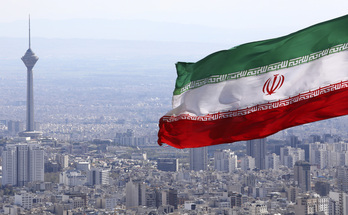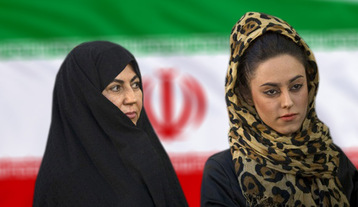-
Arab-Israeli rapprochement is stalled by conflict

The conflict between Israel and the Palestinians embarrassing those Arab governments that recently normalised relations with Israel.
The much-trumpeted Abraham Accords - that saw the UAE, Bahrain, Morocco and Sudan all sign agreements with Israel - were always going to be hostage to events on the ground. Now those events have descended into deadly violence, any further public warming of relations between the Arab states and Israel has been put on hold.
The Abraham Accords, concluded with such fanfare in the final months of the Trump administration, saw several Arab countries not only normalise their relations with Israel but also cooperated with it in a wide range of sectors including security and intelligence - something unprecedented. Within weeks of the signings in Washington, the Gulf gave the head of Israel's external intelligence agency, Mossad, a VIP welcome - something unthinkable.
The governments of the signatory nations, especially the UAE and Bahrain, find themselves in a very uncomfortable position with their populations as they told them of the coming benefits of teaming up with Israel in the fields of trade, tourism, medical research, green economics and scientific development. However, they now feel embarrassed as 24-hour TV footage show the bombardment of Gaza by Israel, the threatened eviction of Palestinians from their East Jerusalem homes and the recent storming by police of that city's sacred Al-Aqsa Mosque compound.
The Saudis are breathing a sigh of relief that they resisted the US pressure to normalise relations with Israel maybe the expected that something like this could happen.
Jerusalem, as the third holiest site in Islam after Mecca and Madina, holds a special place in the hearts of Muslims and Arabs across the world, so the events at the Al-Aqsa mosque have touched a raw nerve for Saudis as well as others in the region. Bahrain's government has been one of several to issue statements this week reaffirming its support for the Palestinian cause. X
Michael Stephens, an Associate Fellow at the London-based think-tank Royal United Services Institute, notes that the Arab promise that the Abraham Accords would provide countries like the UAE some influence over Israel to help the Palestinian cause has turned out to be empty.
Most Arab governments in the Gulf have little love for Hamas. But the sympathies of those countries' Arab populations lie firmly with the Palestinians. If there was some reluctance amongst them to accept the newfound friendship with Israel after so many decades of antipathy then recent events will have only increased their scepticism.
So how will this conflict affect relations between Israel and its Arab partners in the long term?
That depends in large part on how much longer it lasts and whether casualties keep rising. For now, the Arab states which normalised relations cannot afford to be seen to be close to a state that is killing Palestinians, whatever the provocations from Hamas.
Michael Stephens said that: "There is no way the UAE will break off the Abraham Accords. But relations will go into a holding pattern until events calm down".
In practice that means bilateral contacts will carry on privately behind closed doors, as they have done for years, but the good smiling days and joint ambassadorial press conferences are most likely paused now.
By Frank Gardner
BBC security correspondent
You May Also Like
Popular Posts
Caricature
BENEFIT AGM approves 10%...
- March 27, 2025
BENEFIT, the Kingdom’s innovator and leading company in Fintech and electronic financial transactions service, held its Annual General Meeting (AGM) at the company’s headquarters in the Seef District.
During the meeting, shareholders approved all items listed on the agenda, including the ratification of the minutes of the previous AGM held on 26 March 2024. The session reviewed and approved the Board’s Annual Report on the company’s activities and financial performance for the fiscal year ended 31 December 2024, and the shareholders expressed their satisfaction with the company’s operational and financial results during the reporting period.
The meeting also reviewed the Independent External Auditor’s Report on the company’s consolidated financial statements for the year ended 31 December 2024. Subsequently, the shareholders approved the audited financial statements for the fiscal year. Based on the Board’s recommendation, the shareholders approved the distribution of a cash dividend equivalent to 10% of the paid-up share capital.
Furthermore, the shareholders endorsed the allocation of a total amount of BD 172,500 as remuneration to the members of the Board for the year ended 31 December 2024, subject to prior clearance by related authorities.
The extension of the current composition of the Board was approved, which includes ten members and one CBB observer, for a further six-month term, expiring in September 2025, pending no objection from the CBB.
The meeting reviewed and approved the Corporate Governance Report for 2024, which affirmed the company’s full compliance with the corporate governance directives issued by the CBB and other applicable regulatory frameworks. The AGM absolved the Board Members of liability for any of their actions during the year ending on 31st December 2024, in accordance with the Commercial Companies Law.
In alignment with regulatory requirements, the session approved the reappointment of Ernst & Young (EY) as the company’s External Auditors for the fiscal year 2025, covering both the parent company and its subsidiaries—Sinnad and Bahrain FinTech Bay. The Board was authorised to determine the external auditors’ professional fees, subject to approval from the CBB, and the meeting concluded with a discussion of any additional issues as per Article (207) of the Commercial Companies Law.
Speaking on the company’s performance, Mr. Mohamed Al Bastaki, Chairman BENEFIT , stated: “In terms of the financial results for 2024, I am pleased to say that the year gone by has also been proved to be a success in delivering tangible results. Growth rate for 2024 was 19 per cent. Revenue for the year was BD 17 M (US$ 45.3 Million) and net profit was 2 Million ($ 5.3 Million).
Mr. Al Bastaki also announced that the Board had formally adopted a new three-year strategic roadmap to commence in 2025. The strategy encompasses a phased international expansion, optimisation of internal operations, enhanced revenue diversification, long-term sustainability initiatives, and the advancement of innovation and digital transformation initiatives across all service lines.
“I extend my sincere appreciation to the CBB for its continued support of BENEFIT and its pivotal role in fostering a stable and progressive regulatory environment for the Kingdom’s banking and financial sector—an environment that has significantly reinforced Bahrain’s standing as a leading financial hub in the region,” said Mr. Al Bastaki. “I would also like to thank our partner banks and valued customers for their trust, and our shareholders for their ongoing encouragement. The achievements of 2024 set a strong precedent, and I am confident they will serve as a foundation for yet another successful and impactful year ahead.”
Chief Executive of BENEFIT; Mr. Abdulwahed AlJanahi commented, “The year 2024 represented another pivotal chapter in BENEFIT ’s evolution. We achieved substantial progress in advancing our digital strategy across multiple sectors, while reinforcing our long-term commitment to the development of Bahrain’s financial services and payments landscape. Throughout the year, we remained firmly aligned with our objective of delivering measurable value to our shareholders, strategic partners, and customers. At the same time, we continued to play an active role in enabling Bahrain’s digital economy by introducing innovative solutions and service enhancements that directly address market needs and future opportunities.”
Mr. AlJanahi affirmed that BENEFIT has successfully developed a robust and well-integrated payment network that connects individuals and businesses across Bahrain, accelerating the adoption of emerging technologies in the banking and financial services sector and reinforcing Bahrain’s position as a growing fintech hub, and added, “Our achievements of the past year reflect a long-term vision to establish a resilient electronic payment infrastructure that supports the Kingdom’s digital economy. Key developments in 2024 included the implementation of central authentication for open banking via BENEFIT Pay”
Mr. AlJanahi concluded by thanking the Board for its strategic direction, the company’s staff for their continued dedication, and the Central Bank of Bahrain, member banks, and shareholders for their valuable partnership and confidence in the company’s long-term vision.
opinion
Report
ads
Newsletter
Subscribe to our mailing list to get the new updates!






















